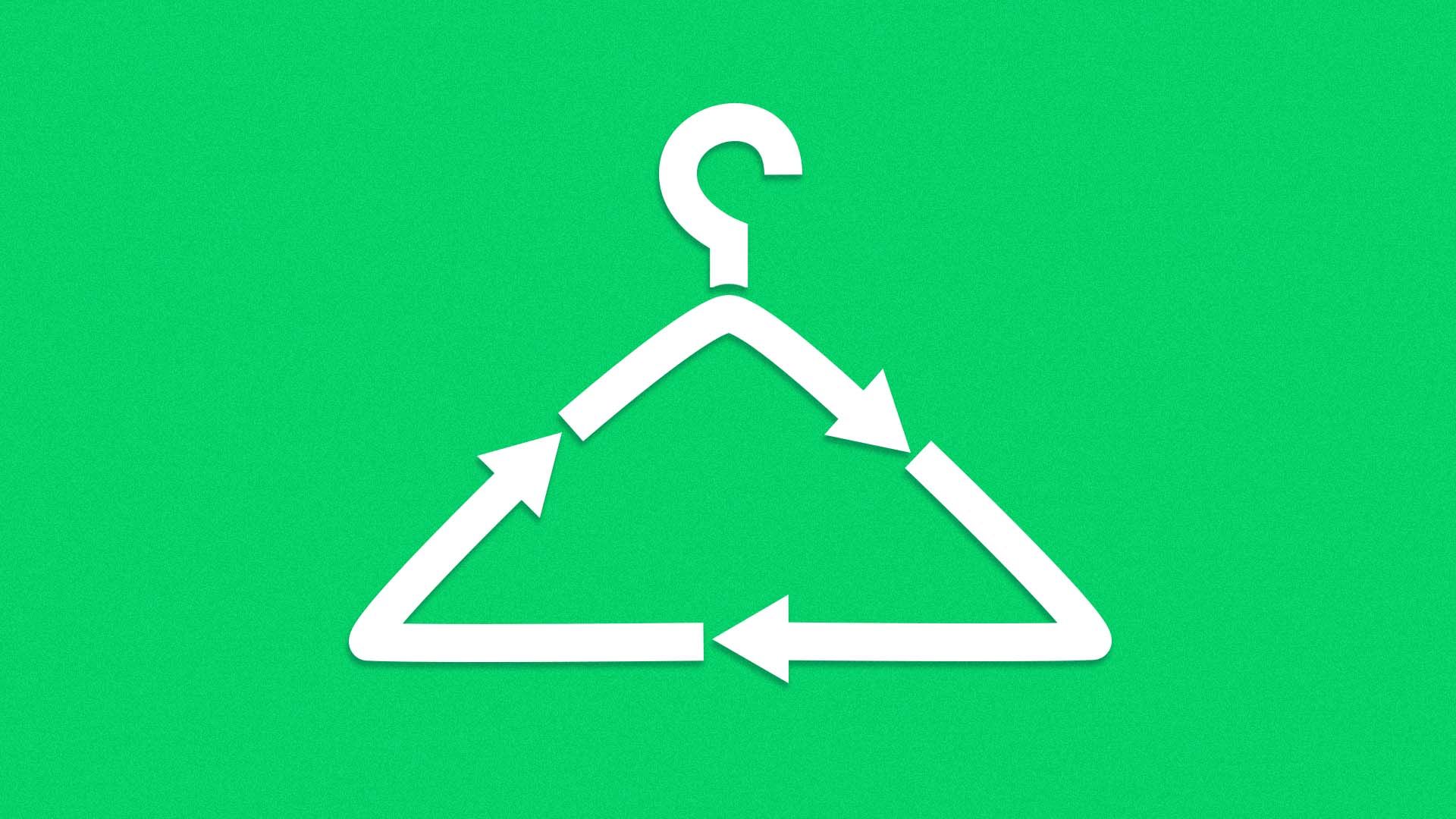Fashionably late: The apparel industry's shift toward sustainability
Add Axios as your preferred source to
see more of our stories on Google.

Illustration: Sarah Grillo/Axios
Designer looks captured the catwalks at Fashion Weeks around the world. But beyond the runways, recycled clothing, thrifting and renting apparel are growing in popularity and reshaping the market.
Why it matters: Fashion is a massive polluter. According to the United Nations, fashion produces 20% of the world's wastewater and 10% of the world's carbon emissions — calling the habit of quick closet-turnover into question.
- Green fashion is becoming increasingly mainstream.
- Celebrities are ditching one-and-done fashion looks, opting to up-cycle or re-wear their looks at major events.
- Recycled brands took over the runways in January at Men's Fashion Week.
- Consumer interest in sustainability is causing major brands to shift their business practices.
Where it stands: Market niches that favor the trend are emerging in the clothing industry.
Recycled materials
Some companies are producing apparel made from recycled materials ranging from water bottles to previously worn garments.
- Rothy's, a popular shoe brand, makes flats, sneakers and loafers 100% from post-consumer water bottles.
- Hanes, an undergarment staple, has increased the use of recycled cotton and polyester.
- H&M, a prominent fast-fashion retailer, has committed to using 100% sustainable cotton this year and offers discounts to customers who recycle their old clothing with the company.
Apparel renting
A number of companies offer subscriptions that allow shoppers to rent pieces, often of high quality, and return them for new stock.
- Consumers cycle through a wear-and-return closet, rather than buy individual items. The industry produces less and, in turn, pollutes less.
- Some individual retailers — Urban Outfitters, American Eagle, Express — are creating their own rental services, while others offer an array of brands.
- Rent the Runway, one of the leaders in rentable apparel, was valued at $1 billion last March, according to Business Insider.
The revival of thrift
Thrifting has made a comeback, with digital outlets offering re-sellers a new avenue for profit.
- Social media has allowed thrift stores to market their content online and offer shipping services, vastly expanding access to customers.
- Self-selling apps like Poshmark and Mercari have also allowed individuals to start listing pieces in their own closets for secondhand sale.
- Thrifting reduces the production of new clothing and the amount of used apparel stuffed into the back of closets and trash bags.
The bottom line: There's innately something less sexy about renting or reusing clothes. However, there's also something particularly unattractive about a polluted, warming planet for the sake of a stylish fit, making the former worthy of consideration.
Go deeper: More people are into fashion, but fewer inspired by legacy outlets
